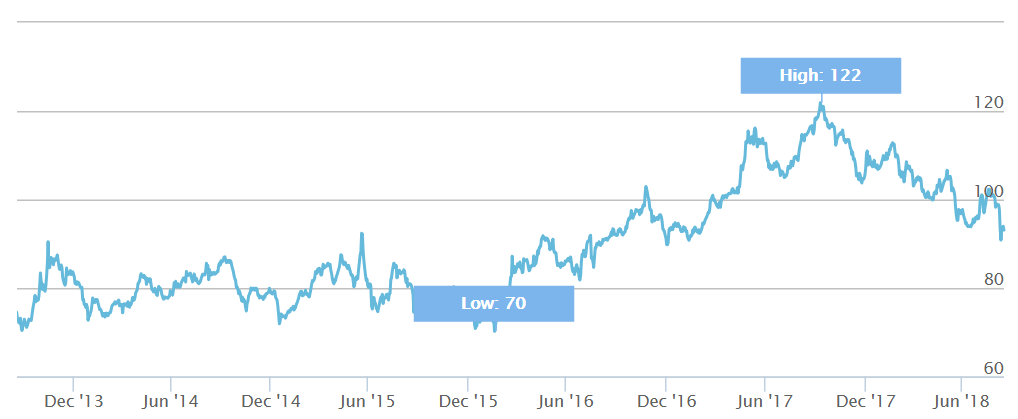You don’t invest in a football club to become wealthy, you invest in a football club because you are wealthy. However, with that being said, top European football clubs have proven themselves to be excellent at generating and growing their revenues over the last two decades.
International demand and popularity of European top football have increased revenues from broadcasting rights and competitive fees dramatically. However, these clubs do not seem to as profitable when it comes to returning profits to their shareholders.
There are several reasons for this:
- Sports in Europe are not as commercialized when compared to the professional sports leagues in the US. This implies that the aim of the owners of the clubs isn’t necessarily profit maximization.
- Another reason is the organizational differences in these leagues. European competitions are very open, both in terms of relegation and promotion, as in property rights and entry barriers sportive resources (Dietl & Duschl 2009).
- That last observation is worth closer attention. As the teams in the US leagues are run as franchises within the league and the league sets barriers to the inflow of players (drafting systems) and salary caps, a game theoretical view would imply that US clubs do not need to go into an ‘arms race’ as they know for sure that the other clubs are restricted as well. The openness of the European clubs causes competing clubs to drive up salary costs as well as transfer costs.
Sportive performance and profitability
Any attempt to invest in European football clubs should be aimed at finding clubs that are trading at a considerable discount. Most often these clubs carry valuable assets and their revenue should be at least so some extent, inflation resistant.
Another point to consider is the uncertainty of (economic) outcomes with respect to competitive performance. For example, the underachievement of Juventus FC (7th place in Seria A) this season, means that the club will be loosing out on about €25M next season as it did not qualify for UEFA Champions League. Clubs invest in players in accordance to their sportive ambitions but if these are not realized, it has a significant impact on their bottom line.
Accounting for Player Registration Rights
Another source of uncertainty of outcome is the management of registration rights (the player contracts). These registration rights are carried in the books as intangible assets. Although these contracts are costs to the club (as opposed to investment) it is a right to the future use of the talent of the player, which the club needs to generate revenue. These rights are also tradable and can be a significant source of revenue for smaller clubs.
To invest profitably in European football clubs, one would have to take a fundamental look at each club, for example by comparing the carrying value of player registration rights on the balance sheet to an estimate of the market value of those players.
Avoiding clubs with a large amount of debt would provide a further margin of safety and less exposure to the risks caused by the uncertainty of outcome. There are various football clubs spread throughout Europe that are publicly listed.
STOXX® Europe Football index
The STOXX Europe Football Index covers all football clubs that are listed on a stock exchange in Europe or Eastern Europe, Turkey or the EU-Enlarged region. The index accurately represents the breadth and depth of the European football industry.

STOXX Europe Football Constituents
There are 22 constituents in the STOXX European Football Index:
- Juventus Football Club SpA
- AS Roma SpA
- Celtic Plc
- Borussia Dortmund GmbH & Co. KGaA
- OL Groupe SA (Olympique Lyonnais)
- AFC Ajax
- Galatasaray
- Besiktas
- Lazio
- Brondby IF B
- Parken Sport & Entertainment (FC Copenhagen)
- Fenerbahce Futbol AS
- Teteks AD Tetovo (FK Teteks)
- Sporting Clube de Portugal Futebol SAD (Sporting Lissabon)
- AFG
- Silkeborg
- Trabzonspor Sportif Yatirim ve Ticaret A.S.
- Sporting Lisboa e Benfica Futebol SA
- Aalborg Boldspilklub A/S
- AIK Football
- Sporting – Soc. Desportiva de Futebol
- Futebol Clube do Porto Futebol SAD
- Ruch Chorzów
Deloitte Money League
The Deloitte Football Money League is a ranking of football clubs by revenue generated from football operations. It is produced annually by the accountancy firm Deloitte and released in early February of each year, describing the season most recently finished.
Forbes Most Valuable Soccer Teams List
Every year, Forbes Magazine publishes a ranking of the top 20 most valuable soccer clubs. The valuation methodology uses Enterprise Value (equity plus net debt). Operating income is earnings before interest, taxes, depreciation and amortization, player trading and disposal of player registrations. Debt includes long-term borrowings and stadium debt recourse to the team.
Transfermarkt
Transfermarkt is a German-based website that collects statistics on football players and performers estimates on their intrinsic market values.
One thought on “Investing in European Football Clubs”